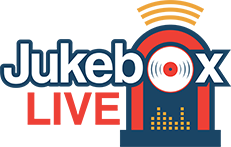Crowdfunding for Musicians: Why Is It Important for Your Projects?
Eventually, every musician has to think about money, especially if you want to take music promotion seriously. Hence, there is an easy way to turn a fall to funding crowdfunding. But where do you start? And more importantly, how do you make it work out perfectly?
What is crowdfunding?
Crowdfunding means getting a small amount of support from a large audience, e.g., your fanbase. It helps you avoid seeking a huge advance from one source, like a record label, or a loan.
Crowdfunding lets you tap into all those loyal followers you’ve been building through learning how to promote your music. And guess what? Your fans actually don’t mind helping you and supporting your projects. All you have to do is ask!
Crowdfunding lets you do it in a manageable way. Besides, you get to give back to your fans along the way. Crowdfunding really works if you try your best to make it right!
Crowdfunding tools to support your next project
Different crowdfunding platforms are designed to help people like you. However, there are some successfully and truly working tools you should use for your next project:
#1 Kickstarter
Kickstarter is the most established crowdfunding platform as of now. A campaign is easy to setup and free to start and the funding is pretty straightforward. You set a goal for funding and set a deadline. If you meet your goal in time you receive all the funding you managed to get, whereas Kickstarter takes 5%. If you don’t meet your goal in time, every donation made by your fanbase is refunded.
Moreover, depending on how much a fan donates they get rewards that you decide on. Like tickets to gigs, albums, posters, private shows, or anything else you would like to give away! Overall, Kickstarter is easy to use and a great way to give back to your fans on a one-on-one basis.
#2 Indiegogo
Indiegogo provides services tailored to artists like musicians, filmmakers, and other creatives. It’s pretty similar to Kickstarter, as it’s free to get started. You create a page and video explaining your project. Then you set a goal and deadline for your campaign. If you meet your goal, you get the money, while Indiegogo takes 4%; if you don’t meet the goal, you get nothing.
Where it differs from Kickstarter is their ‘Flex Funding’ option. To cut short, it gives you the option to collect your earnings even if you don’t meet the goal (Indiegogo takes 9% if you don’t make it and 4% if you do plus some small processing fees). Therefore, Indiegogo is perfect for bands or other music projects — they are the creator’s first platform that offers easy-to-follow analytics to see who’s interested in your project.
#3 Patreon
Patreon is newer than crowdfunding platforms like Kickstarter or Indiegogo and it’s a bit different from other services. Instead of asking for a one-time amount, Patreon lets you set up a funding campaign that is ongoing. You can decide if you want your Patreon to be on a monthly or per-project basis. For example: if one of your fans chooses to pledge $5, it would be a recurring $5 donation every month or every project you start.
It’s great for funding an entire album project that will unfold over time, or for branding your project all around with music videos, gigs, tours, or merchandise. However, Patreon needs constant maintenance, like talking to your fans, keeping them up to date with your project, delivering on your promises, and interacting one-on-one with everyone that donates.
Why is crowdfunding important?
Crowdfunding is all about your community. Crowdfunding lets you do 3 very important things:
Give back to your loyal fans
Get valuable insight into what your fanbase cares about and what your project means to them
Turn your community into a sustainable resource for your future projects
Crowdfunding isn’t a money machine; it’s about promoting your campaign with solid planning, a promotion plan, and help from society. So, when it’s done right, it will help you meet your financial goals for your next project and then some more!

